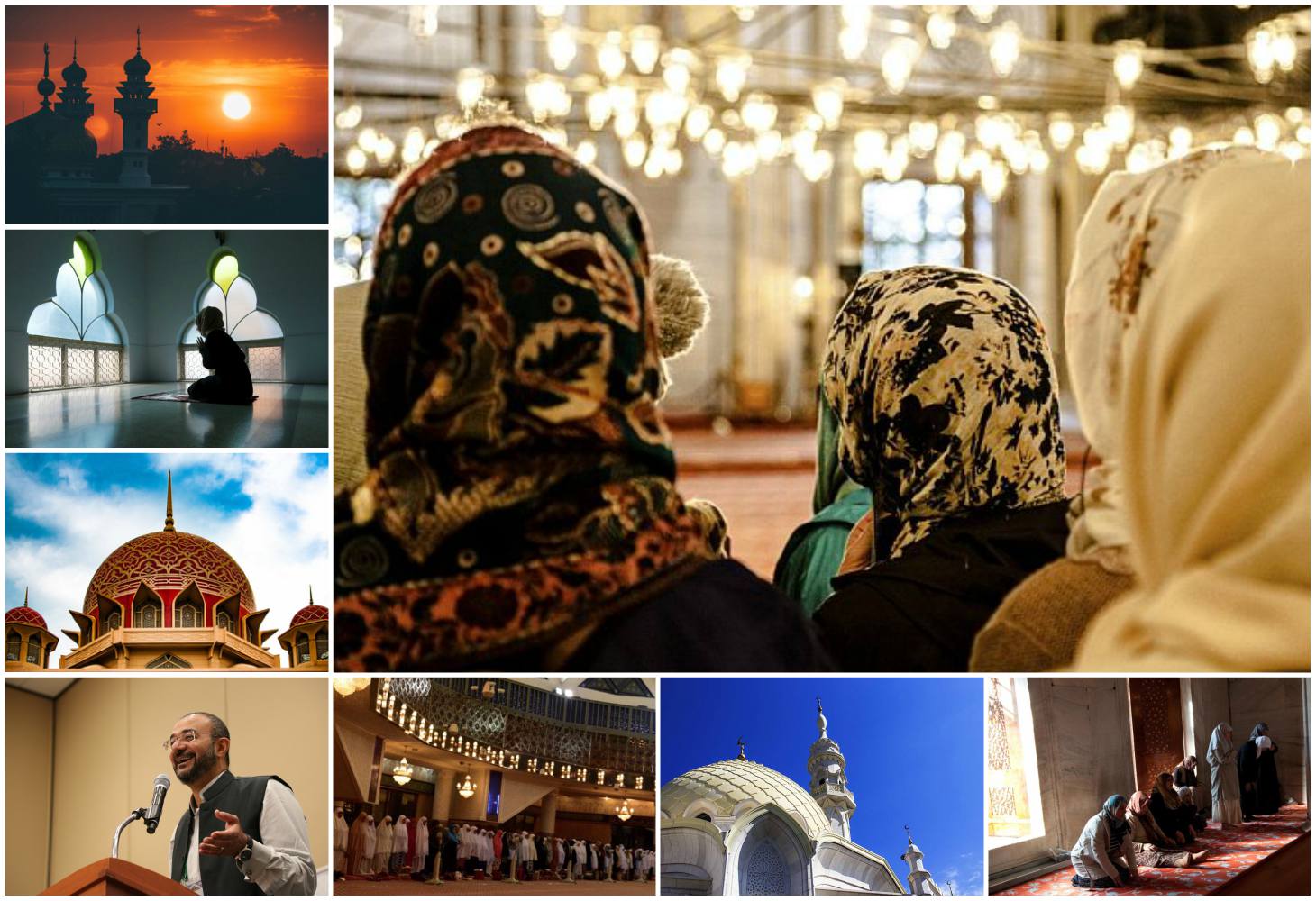In This Series
Some people object to the open design of mosques [that has no partition between men and women] drawing on the opinion that man’s prayer is interrupted when a woman passed in front of him; some even believe that he has to repeat his prayer.
To support this opinion, the following narration is quoted:
Abu Hurayrah and Abu Dhar reported that the Prophet (peace and blessings be upon him) said, “Prayer is interrupted by a woman, a dog and a donkey [when they pass in front of a praying person]”.[1]
In fact, this contradicts the mutawatir reports about the Prophet’s Mosque. Besides, these narrations conflict with other reports that indicate the exact opposite, some of which are even reported by the same narrators of this Hadith. It was reported from Abu Huraryrah himself that the Prophet (peace and blessings be upon him) said,
“A person’s prayer is not interrupted by a woman, a dog, or a donkey, and drive back whatever passes in front of you [and within your hand’s reach] as much as you can.”[2]
However, the authenticity of this narration is not established.
Furthermore, if the Hadiths maintaining that “a person’s prayer is interrupted” are more authentic in terms of its chains of narration than the Hadiths maintaining that “a person’s prayer is not interrupted”, then the decisive statement on that issue is the authentic Hadith reported by Muslim and others from lady `A’ishah (Mother of the Believers, may Allah be pleased with her) criticizing the former narrations as inaccurate:
`Abdullah ibn `Ubaydullah ibn `Umayr reported that when `A’ishah was asked about the narrations to the effect that (the passing of) a dog, a woman, and a donkey interrupt one’s prayer, she stated, “Would you hold these (animals) equal to a Muslim woman?”
(In another narration, she said, “How bad that you hold us equal to the donkey and the dog”, and in a third narration, “A woman would then be (viewed as) an ugly animal!”).
I have witnessed occasions on which I would wake up while the Prophet (peace and blessings be upon him) was offering prayer with me lying interposed between him and the Qiblah.”[3]
In another narration, she said, “with me lying interposed between him and the Qiblah like the bier of a corpse in a funeral prayer.”[4]
Ash-Shafi`i commented on this issue saying, “If a woman’s presence in front of a praying person does not invalidate his prayer, then it is more entitling that her presence to his right or to his left does not (invalidate it too)”.[5]
Besides, Muhammad ibn Al-Hassan said,
“There is no harm if a man prays while his wife is lying, standing or sitting in front of him or to his side, or while she is praying as long as she is offering a different prayer than that he is offering. For it is disliked that she offers the same prayer he is offering, while being by his side or in front of him, or if both are offering prayer behind the same Imam.”[6]
According to the Hanbalis,
“A man’s prayer while a woman is praying in front of him is disliked; otherwise – if she is not praying – then it is not disliked (for him to pray then),” drawing on the above quoted Hadith of lady `A’ishah.[7]
Abu Dawud noted the conflicting reports on this issue despite the practice of the Companions (may Allah be pleased with them), which maintains the effect that nothing interrupted prayer, and said, “If two reports from the Prophet (peace and blessings be upon him) conflict, we should refer to the established practice of his Companions after him.”[8]
[1] See Muslim’s Sahih, 1/365 and Ahmad’s Musnad, 2/299. Shu`ayb Al-Arna’ut commented on this Hadith saying that its narrators are trustworthy narrators approved by Al-Bukhari and Muslim, though a considerable controversy occurred regarding Qatadah. It is also reported in Ibn Hibban’s Sahih, 6/151, Ibn Majah’s Sunan, 1/305, and in other sources.
[2] Reported in Ad-Daraqutni’s Sunan, 2/196, and other narrations to the same effect are reported in Abu Dawud’s Sunan, Malik’s Muwatta’ and Ahmad’s Musnad.
[3] See Is-haq ibn Rahawayh’s Musnad, 3/613, Ibn Hibban’s Sahih, 6/111, and Abu Dawud’s Sunan, 1/198. Al-Albani, commenting on Abu Dawud’s narration, said that it is “authentic”.
[4] See Muslim’s Sahih, 1/366.
[5] Al-Um, 1/198.
[6] Al-Muwatta’, Muhammad ibn Al-Hassan’s narration, 2/58.
[7] Kashshaf Al-Qina` `An Matn Al-Iqna`, 1/330.
[8] Abu Dawud’s Sunan, 2/44.
